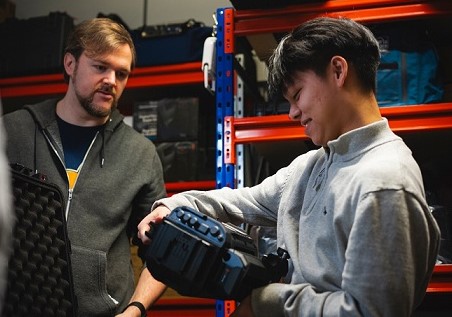As the year 2024 moves on, will the world slowly lose interest as technology fails to deliver?
In fact, some top analysts are already calling the technology “hyped,” and even predicting it will receive a “cold shower” in 2024 due to unrealistic expectations, high costs, and regulatory challenges. Technology experts from across the travel industry for their opinion on whether generative AI will really change the travel experience in 2024, or if we're getting too excited, too soon.
Mike Coletta, director of research and innovation at Phocuswright, disagrees with analysts who are reluctant about the potential of generative AI. “The tourism sector is on the cusp of massive change, and there is enormous potential for AI to transform the travel experience for both travellers and the ecosystem of tourism providers.
“Phocuswright research shows that almost half of travellers in most countries would be extremely or somewhat comfortable using a GenAI tool to help them plan a trip. Between 13 and 22% of the total traveller population has used GenAI in some way.
“As the industry overcomes the initial euphoria, 2024 will be about leveraging what has been learned to date to focus on the most beneficial use cases and avoid wasting resources on those without a clear ROI. In 2024, travel companies are expected to accelerate investment in generative AI applications.
“But separating the winning use cases from the losing ones will be an ongoing process of trial and error. At this juncture, an outcomes-based approach is needed to highlight the most relevant and impactful use cases in travel.” The initial success of AI is likely to depend on the challenges to which people apply it.
As Haluk Kayhan, CEO and Co-Founder of B2B accommodation booking platform Bedsopia, powered by global distributor PrimeTravel, points out: "AI could be hugely transformative for travel in 2024, but the industry needs to figure out where it is most needed and Avoid trying to solve problems that no one knows you have Focus on the real headaches or high-cost/low-performance areas of your operations, such as staff shortages, flight disruptions, sudden waves of cancellations, payment processing and overall operational inefficiencies.
“These are the areas where AI could catalyse the biggest change, most quickly, perhaps even significantly by 2024. AI technology has to be essential at this stage, not "Just a trick. Let's face it: it's not going to change the whole world overnight, people are not ready for it."
Data access is a key consideration and one of the most impactful use cases for travel. “The main way we will see AI impact travel in 2024 is around data,” says José Arozarena of TourReview, a platform for travel and activity providers to manage their online reviews.
Companies that have the greatest amount of data, or that offer services to clients who, in turn, have large sets of data, will be the ones that benefit the most, and more quickly. AI will be able to make sense to that data more effectively, giving them insights that allow them to serve travellers better and more personalized.
Think of it like the consumer market research revolution starting in the 1950s, only happening throughout of a few years and not of decades. According to Sami Doyle of TMU Management, a data-driven travel insurance broker, generative AI could transform the way financial institutions serve the travel industry.
“The tourism sector is inherently risk-based and that risk extends to consumers who pay for goods before receiving the service and to financial institutions that provide services to travel companies for the future delivery of products. AI could be a powerful tool to help financial institutions provide services such as credit card acquisition and financial protection in a sustainable way that alerts stakeholders to potential risks before they occur.
“This has an impact on the cost of these services and their continued provision to the sector, which would mean lower costs for consumers and the peace of mind that there is financial protection to cover failures.” As with any new technology, the most valuable benefits are not always immediately apparent.
Adam Harris, CEO of Cloudbeds, a provider of hospitality technology solutions for independent property owners, believes hoteliers will see the efficiency of their internal operations accelerate. “In a perfect world, advanced AI would fine-tune revenue management for hoteliers and work on their behalf like a GM 24/7/365.
“This year that's the direction we'll be moving in as forward-thinking vendors like Cloudbeds continue to innovate products that drive and streamline internal efficiency. Tech companies like ours are already using advanced AI and machine learning to make guest communication tools smarter and help hoteliers quickly develop high-performing websites and copy.
“Over the next year, hoteliers will continue to benefit from intelligent AI solutions that help them make better decisions and execute them.” For his part, Sergio Mendoza, CEO of airline pricing and intelligence company Airnguru, believes that the real game-changer for AI in travel has been the emergence of cloud technology.
“Airlines have long been using machine learning techniques to forecast demand in Yield Management. However, the cloud revolution provided cost-effective and democratic access to unprecedented and virtually unlimited storage capacity and processing power.
The cloud catalysed the use of big data to improve machine learning models and business intelligence, and the emergence of new advances such as generative AI. The cloud has allowed us to take advantage of AI tools available on the market on a scale unimaginable a decade ago.
Airlines already rely on AI applications in several areas of their business. Generative AI is poised to substantially expand the breadth of enterprise capabilities for AI applications, increasing its impact across the enterprise. In particular, this revolution is enabling carriers to substantially improve their overall pricing and business strategies, driving revenue growth.”
As a final thought, the sector should not get too carried away with new ideas that are too futuristic, warns Alex Barros, director of marketing and innovation at the leading hotel revenue management platform BEONx. In his opinion, we should focus on what can be done well with this new technology, "for AI to be transformative in travel, we have to start with how it can be applied to the things we are already doing.
For example, we are seeing that many hotels use it to generate attractive and accurate hotel descriptions, resulting in an instant increase in conversation rates. This is showing real impact and plays on consumer behaviour; the chances of a purchase "a hotel offering will be much greater with AI, as there will be better and more attractive levels of personalization and engagement."











